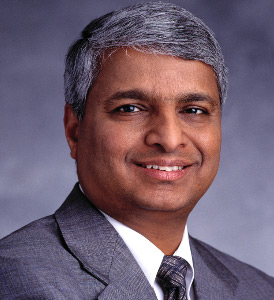After selling his first technology company, Gururaj Deshpande donated $20 million to the Massachusetts Institute of Technology to create a center for technological innovation, which bears his name.
Deshpande is proud of the work the center fostered, but the effort focused on what he refers to as the 2 billion people in the world with disposable income. He wanted to do more to help the other 5 billion.
“Those people are struggling to get through the day,†said Deshpande, a billionaire who was born in India and has lived in suburban Boston for decades.
His idea was to encourage entrepreneurship in overlooked cities and towns by concentrating on startups, with no more than 10 employees, that would be part of the community but also spur the local economy with jobs and services.
His organization, Entrepreneurship for All, offers training and mentoring for aspiring small-business owners who have ideas but lack capital and connections. After working in cities in Massachusetts for nearly a decade, the organization, known as EforAll, is looking to transplant its model to other parts of the country. It recently started a program in Longmont, Colorado.
The concept of using philanthropy to revive struggling communities is attracting the attention of wealthy entrepreneurs. They see it as a way not only to combat income inequality but also to stanch the flow of talent out of these communities.
Steve Case, founder of AOL and chief executive of investment fund Revolution, started Rise of the Rest, a fund that makes early investments in companies outside Silicon Valley, New York and Boston. Part of its effort is a series of bus trips to cities not typically on the venture capital map. The idea is to find innovators wherever they are.
Tony Hsieh, a chief executive of Zappos, the online shoe retailer, invested $350 million in an attempt to create a startup community in downtown Las Vegas. But his Downtown Project has had mixed results. At one point, he said he wished its goals had been better defined from the outset, though he is still at it.
Darla Moore, whom I wrote about two years ago, took a different approach. After a successful career in finance largely in New York, she returned to her hometown, Lake City, South Carolina, where she has invested more than $100 million over the past decade to revitalize the farm community.
That project was rewarding, but the process was deliberate. “I didn’t walk in and say, ‘I’m back, and I’ve brought a bunch of money, so let’s fix ourselves up,’ †she said.
Small-business owners without connections still struggle to raise capital, said Tim Ferguson, founder and chairman of Next Street, an advisory firm that works with communities to help small businesses.
“There’s a whole ecosystem of support that exists in tech, biotech, life sciences that doesn’t exist for small businesses in underserved communities,†he said. And if there are no friends and families to help, getting started can be difficult.
Ferguson said he wished philanthropists would invest parts of their portfolio in loans to small businesses. “The philanthropists are doing really important work, but they could be doing so much more if they thought about their capital in a differe ..
Deshpande believes that working with local people has allowed EforAll not only to make strong connections but also to get support in both volunteer time and donations.
In some ways, he has shaped EforAll to be the opposite of flashy venture capital-backed philanthropy.
Many successful entrepreneurs expect that the ideas that made them wealthy can build the economy in underserved communities. Deshpande thinks that this approach, although well intentioned, will fail.
“Entrepreneurs always want to lead with innovation,†he said. “They think the best way to revive these communities is to start a biotech incubator. It doesn’t work. It’s not the talent of those residents.â€
Deshpande said that approach did not solve basic problems like a need for jobs that give people a sense of purpose. So he focused EforAll on small businesses that are rooted in the community.
“They’re not going anywhere,†he said. “They’re going to build an economy.â€
Read more at:

